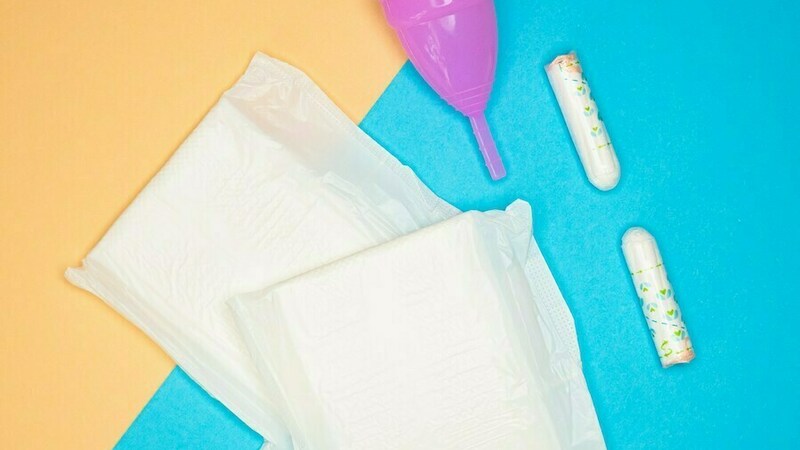Here on the University of Notre Dame’s campus, there’s a necessity in many of the women’s restrooms that most of us take for granted. A small basket sits on the counter by the sinks of the busiest restrooms on campus, containing disposable menstrual products that are free for anyone to use. On January 24, 2023, the Code Red Initiative launched, which implemented the free period products in many of the women’s restrooms on campus, thanks to the efforts of Notre Dame’s Student Government (Rice). What if I told you that there are people who struggle to acquire this basic necessity, something that we rarely think about, on a daily basis?
Imagine this: a young woman does not have access to menstrual products because she lives in poverty and cannot afford them. Her period arrives and the discomfort and embarrassment of not having the proper products discourages her from going to school. Every month she faces the same issue and eventually drops out. She finds a low-paying job and for every paycheck, she has to choose between buying food or other necessities such as menstrual products. She may also experience infections and other hygienic issues related to her lack of period products. Think about the other already difficult trials and tribulations of growing up while being a middle or high schooler. Although I am not directly impacted by this issue, I want to take action for others because no young woman should have to deal with the burden of having no menstrual products. The vicious cycle of women lacking period products and its impact is what is referred to as "period poverty" (Michel, et al.).
Research shows that the average woman will spend about $6,360 on menstrual products in her lifetime, according to a study by SWNS Digital (Sadlier). That’s $6,360 that she could be spending on other necessities, not to mention that’s $6,360 that their male counterparts do not have to worry about.
As a country, we should strive to make menstrual products more accessible because it serves as a basic necessity. Recently, my home state of Texas removed the sales tax from all feminine products, which should be the bare minimum action across all fifty states. There are still places that consider menstrual products as "luxury goods," and tax them as such, which is known as the “Tampon Tax.” This should never be the case. Sure, some people may not even think about the small price of the tax, but for women living in period poverty, the tax acts as an added barrier.
Upon learning about Texas’s progress in making menstrual products more accessible, and just recently moving to Indiana for college, I began to wonder if Indiana had adopted anything similar. Here, feminine products are unfortunately still impacted by the sales tax. Others may argue that it is not within the state’s budget to afford a tax exemption on menstrual products, but looking at the Indiana Sales Tax Information Bulletin, products such as food coloring and lard are exempted from the sales tax (“Indiana Department”). Why are such random items able to be exempted from the sales tax but not a simple necessity?
Some may argue that Indiana needs the tax money from selling menstrual products. However, the state of Indiana reported a $2.9 billion dollar budget surplus to end the 2023 fiscal year (Gay). The state clearly has the capacity to accommodate the exemption of menstrual products from the sales tax, just as it does with non-taxable food items. The nonprofit organization Period Law works to eradicate the Tampon Tax, and they estimate that Indiana generates about $5.6 million per year in Tampon Tax Revenue (“21 States”). Indiana and the twenty other states that still tax period products contribute to the huge barriers that women, especially those living in poverty, must face in order to acquire such a basic need. Change is entirely possible, it is just a matter of taking action.
Beyond the United States, there are women around the world that experience even more difficulty when it comes to gaining access to period products. The taboo surrounding menstruation plays a huge role in period poverty. Stigma around periods causes young women to grow up confused and misinformed, contributing to the difficulty in breaking the cycle of period poverty. For example, according to CARE International, girls in Bolivia are told that their period can cause life-threatening illness in others (“The Period”). Menstruation is a regular bodily function. Women should never feel ashamed for something that signals a normal body. At its root, the stigma around menstruation can be traced back to sexism. According to Yoppie, a female-founded company that curates menstrual care subscription boxes and works to help women feel more comfortable about their cycle, 42% of women in the United States report being shamed by men for having their period (“Period Poverty”). I am almost certain that in a hypothetical world where men experienced menstruation instead of women, with the same patriarchal dynamic in place, there would be much less difficulty for men to receive products they need.
So, the question still stands, how do we take action against the Tampon Tax and period poverty as a whole? As aforementioned, the University of Notre Dame has already made significant strides towards making menstrual products available by offering them for free across campus in women’s dorms and high-traffic buildings. As exemplified by the student body, change is possible. Outside of the Notre Dame campus, there are several different ways you can take action to combat the Tampon Tax and decrease period poverty. To start, normalizing the topic of periods for both young women and men can create a more shame-free environment where confusion and misinformation can hopefully diminish. Making either a monetary or product donation to a foundation such as Helping Women Period or your local women’s shelter can help low-income women affected by period poverty get the products they need (Helping Women). Another incredibly important way to incite action is to write to your elected officials about exempting menstrual products from the sales tax. The ACLU writes a detailed article on how to write an effective letter to your legislators, linked here. I highly encourage you to write to your legislators to inform them of the issues you care most about, especially if your state still taxes menstrual products, like Indiana. Your voice has more power than you may think. In addition, simply bringing awareness to the issue of period poverty and the Tampon Tax can be effective by itself, as many people could be unaware of the struggles that some women are going through. Change starts with open conversations, and from there action can be taken.
No woman should miss out on opportunities because of their period. No woman should have to choose between food and period products every month. No woman should feel ashamed because of her menstrual cycle. Every woman deserves the right to feminine hygiene products because it is a basic necessity, and everyone should fight for those rights.
Works Cited
Gay, David. “Indiana State Comptroller Reports $2.9 Billion in Surplus to Close 2023 Fiscal Year.” Fox 59, 13 July 2023, fox59.com/indiana-news/indiana-state-comptroller-reports-2-9-billion-in-surplus-to-close-2023-fiscal-year/#:~:text=INDIANAPOLIS%20%E2%80%94%20Between%20the%202022%2D23. Accessed 24 Apr. 2024.
Helping Women Period. “Helping Women Period – Providing Feminine Hygiene Products to Homeless and Low Income Women.” Helpingwomenperiod.org, 2019, www.helpingwomenperiod.org/.
Indiana Department of Revenue. Apr. 2023, www.in.gov/dor/files/sib29.pdf.
Michel, Janet, et al. “Period Poverty: Why It Should Be Everybody’s Business.” Journal of Global Health Reports, vol. 6, no. 6, Feb. 2022, https://doi.org/10.29392/001c.32436.
Rice, Mary. “Code Red Initiative Launched.” Irish Rover, 1 Feb. 2023, irishrover.net/2023/02/code-red-initiative-launched/.
Sadlier, Allison. “New Research Reveals How Much the Average Woman Spends per Month on Menstrual Products.” Digitalhub US, 27 Nov. 2019, swnsdigital.com/us/2019/11/new-research-reveals-how-much-the-average-woman-spends-per-month-on-menstrual-products/.
“Tampon Tax Revenue - Period Law.” Www.periodlaw.org, 27 Jan. 2023, www.periodlaw.org/state-scorecard/. Accessed 24 Apr. 2024.
“The Period Taboo: A Universal Problem.” CARE International, 1 Feb. 2023, www.care-international.org/stories/period-taboo-universal-problem.
Yoppie. “Period Poverty: What Is It & How Can We Help?” Yoppie, yoppie.com/period-poverty.
“Writing Your Elected Representatives.” American Civil Liberties Union, www.aclu.org/writing-your-elected-representatives.

